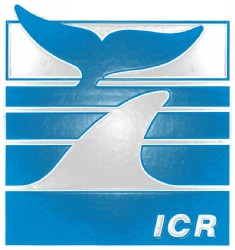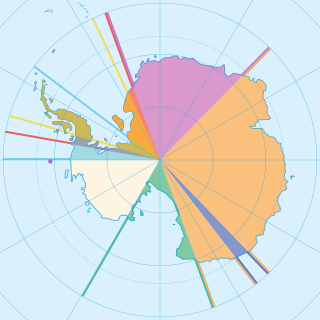| |||||
| Decades: | |||||
|---|---|---|---|---|---|
| See also: | |||||
This is a list of events occurring in Antarctica in 2011.
| |||||
| Decades: | |||||
|---|---|---|---|---|---|
| See also: | |||||
This is a list of events occurring in Antarctica in 2011.

Whaling is the hunting of whales for their usable products such as meat and blubber, which can be turned into a type of oil that was important in the Industrial Revolution. Whaling was practiced as an organized industry as early as 875 AD. By the 16th century, it had become the principal industry in the Basque coastal regions of Spain and France. The whaling industry spread throughout the world and became very profitable in terms of trade and resources. Some regions of the world's oceans, along the animals' migration routes, had a particularly dense whale population and became targets for large concentrations of whaling ships, and the industry continued to grow well into the 20th century. The depletion of some whale species to near extinction led to the banning of whaling in many countries by 1969 and to an international cessation of whaling as an industry in the late 1980s.

The Australian Antarctic Territory (AAT) is a part of East Antarctica claimed by Australia as an external territory. It is administered by the Australian Antarctic Division, an agency of the federal Department of Climate Change, Energy, the Environment and Water. The territory's history dates to a claim on Enderby Land made by the United Kingdom in 1841, which was subsequently expanded and eventually transferred to Australia in 1933. It is the largest territory of Antarctica claimed by any nation by area. In 1961, the Antarctic Treaty came into force. Article 4 deals with territorial claims, and although it does not renounce or diminish any pre-existing claims to sovereignty, it also does not prejudice the position of Contracting Parties in their recognition or non-recognition of territorial sovereignty. As a result, only four other countries — New Zealand, the United Kingdom, France, and Norway — recognise Australia's claim to sovereignty in Antarctica.

The Sea Shepherd Conservation Society (SSCS) is a non-profit, marine conservation activism organization based in Friday Harbor on San Juan Island, Washington, in the United States. Sea Shepherd employs direct action tactics to achieve its goals, most famously by deploying its fleet of ships to track, report on and actively impede the work of fishing vessels believed to be engaged in illegal and unregulated activities causing the unsustainable exploitation of marine life.

The Institute of Cetacean Research is a research organization specializing in the "biological and social sciences related to whales".

Japanese whaling, in terms of active hunting of whales, is estimated by the Japan Whaling Association to have begun around the 12th century. However, Japanese whaling on an industrial scale began around the 1890s when Japan started to participate in the modern whaling industry, at that time an industry in which many countries participated.
The Soviet Antarctic Expedition was part of the Arctic and Antarctic Research Institute of the Soviet Committee on Antarctic Research of the Academy of Sciences of the USSR. It was succeeded by the Russian Antarctic Expedition.
Whaling in Norway involves hunting of minke whales for use as animal and human food in Norway and for export to Japan. Whale hunting has been a part of Norwegian coastal culture for centuries, and commercial operations targeting the minke whale have occurred since the early 20th century. Some still continue the practice in the modern day, within annual quotas.

The Nisshin Maru (日新丸) was the primary vessel of the Japanese whaling fleet and was the world's only whaler factory ship. It was the research base ship for the Institute of Cetacean Research for 2002 to 2007. It had a tonnage of 8,145 GT and is the largest member and flagship of the five-ship whaling fleet, headed by leader Shigetoshi Nishiwaki. The ship was based in Japan in Shimonoseki harbor and was owned by Tokyo-based Kyodo Senpaku, which is a subsidiary of the Institute of Cetacean Research.
The Southern Ocean Whale Sanctuary is an area of 50 million square kilometres surrounding the continent of Antarctica where the International Whaling Commission (IWC) has banned all types of commercial whaling. To date, the IWC has designated two such sanctuaries, the other being the Indian Ocean Whale Sanctuary.

The MV Steve Irwin was the 59-metre (194 ft) flagship of the Sea Shepherd Conservation Society, and was used in their direct action campaigns against whaling and against illegal fisheries activities. The vessel was built in 1975 and formerly served as a Scottish Fisheries Protection Agency conservation enforcement patrol boat, the FPV Westra, for 28 years.
Events from the year 2007 in Antarctica

Seven sovereign states – Argentina, Australia, Chile, France, New Zealand, Norway, and the United Kingdom – have made eight territorial claims in Antarctica. These countries have tended to place their Antarctic scientific observation and study facilities within their respective claimed territories; however, a number of such facilities are located outside of the area claimed by their respective countries of operation, and countries without claims such as China, India, Italy, Japan, Pakistan, Russia, South Africa (SANAE), Poland, and the United States have constructed research facilities within the areas claimed by other countries. There are overlaps among the territories claimed by Argentina, Chile, and the United Kingdom.

Antarctica has no permanent residents, evidently due to its harsh and unforgiving climate, especially during the winter from June to September. However, scientists and such people frequent this place to make their observations. It contains research stations and field camps, and former whaling settlements. Approximately 12 nations, all signatory to the Antarctic Treaty, send personnel to perform seasonal (summer) or year-round research on the continent and in its surrounding oceans.

Whale Wars is a weekly American documentary-style reality television series that premiered on November 7, 2008 on the Animal Planet cable channel. The program follows Paul Watson, founder of the Sea Shepherd Conservation Society, as he and the crew aboard their various vessels attempted to stop the killing of whales by Japanese vessels (whalers) off the coast of Antarctica.

Queen Maud Land is a roughly 2.7-million-square-kilometre (1.0-million-square-mile) region of Antarctica claimed by Norway as a dependent territory. It borders the claimed British Antarctic Territory 20° west and the Australian Antarctic Territory 45° east. In addition, a small unclaimed area from 1939 was annexed in June 2015. Positioned in East Antarctica, it makes out about one-fifth of the continent, and is named after the Norwegian Queen Maud (1869–1938).

Tourism started in Antarctica by the sea in the 1960s. Air overflights started in the 1970s with sightseeing flights by airliners from Australia and New Zealand, and were resumed in the 1990s. The (summer) tour season lasts from November to March. Most of the estimated 14,762 visitors to Antarctica from 1999–2000 were on sea cruises. During the 2009 to 2010 tourist season, over 37,000 people visited Antarctica.

The Sea Shepherd Conservation Society engages in various demonstrations, campaigns, and tactical operations at sea and elsewhere, including conventional protests and direct actions to protect marine wildlife. Sea Shepherd operations have included interdiction against commercial fishing, shark poaching and finning, seal hunting and whaling. Many of their activities have been called piracy or terrorism by their targets and by the ICRW. Sea Shepherd says that they have taken more than 4,000 volunteers on operations over a period of 30 years.

Shirase (しらせ) is a Japanese icebreaker operated by the Japan Maritime Self-Defense Force and is Japan's fourth icebreaker for Antarctic expeditions. She inherited her name from her predecessor.
Sun Laurel is a South Korean-owned oil tanker built in 2008 and currently operating under the flag of Vanuatu.
This is a list of events occurring in Antarctica in 2012.